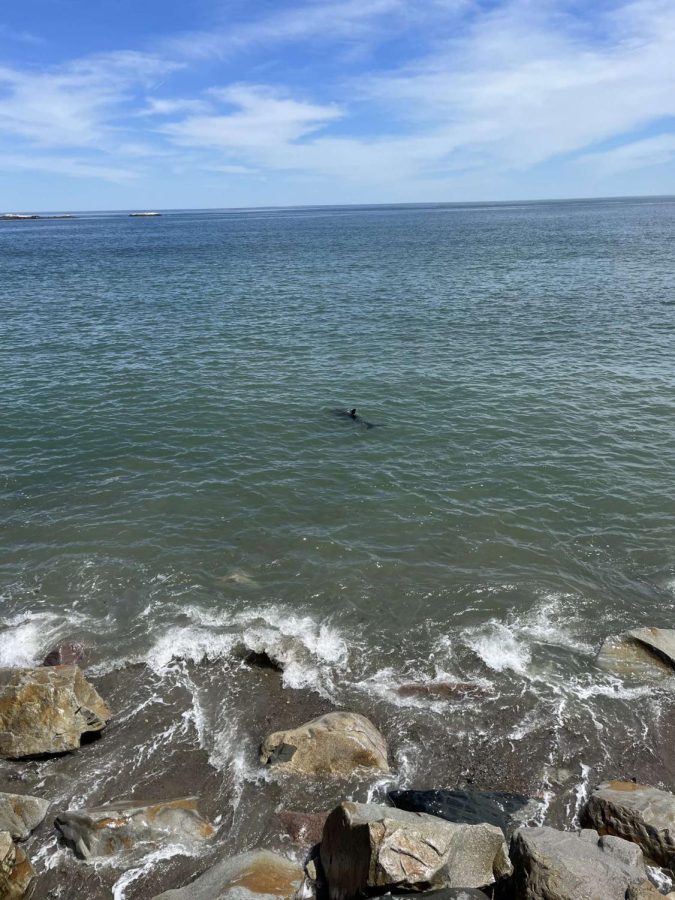Put Your Fins Together–There Was a Dolphin at Minot!
A bottlenose dolphin was recently spotted off the coast of Minot Beach
May 27, 2022
Dolphin at Minot? Those words don’t usually go together! Nevertheless, recently, local residents of Scituate gathered on Glades Road to witness a very rare sighting–a dolphin! A bottlenose dolphin was identified by none other than Scituate Monthly participants. Bottlenose dolphins are typically found in southern temperate and tropical waters. Since New England’s waters are not their preferred habitat, they are rarely seen as far north as Massachusetts. Though a dolphin in Massachusetts is not unheard of, it is rare–and extremely cool–to see one close to shore in Scituate.
A Minot resident, SHS senior Grace Kane witnessed the dolphin when she was driving home. She said it was “near Well Rock,” swimming northwest. She claimed it was “bigger than she expected it to be” and closer to shore than she had ever seen a dolphin. Kane had “never seen a dolphin” in Scituate before, though she had in other places. Kane was very excited to see the dolphin in close proximity to her house, commenting it was a “once in a lifetime” experience. Another SHS student, senior Riley Burke, added that “seeing the dolphin was crazy,” and she feels “lucky” to have been there when the dolphin was within sight of the shore.
Though spotting a dolphin was most definitely exciting, curiosity rose about whether or not this dolphin should really be in Scituate. SHS senior Kelly Kowenhoven, who pursued her passion for marine biology by taking AP Environmental Science, explained a little bit about the usual habitat for dolphins–and why she is concerned dolphins are in the area. Kowenhoven “feels like dolphins should not be in Scituate.” She explained, “Because of the changing temperatures in our global waters, dolphins are starting to come up farther north because that’s where their food sources are moving, but this is not their natural habitat, and this will cause issues in the future if they continue to move north.”










